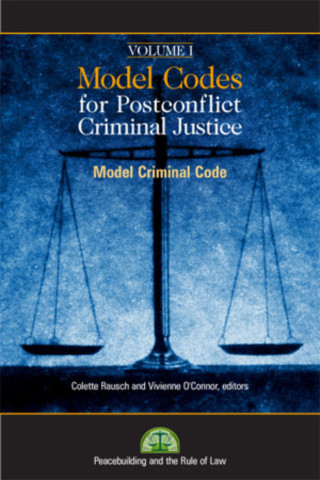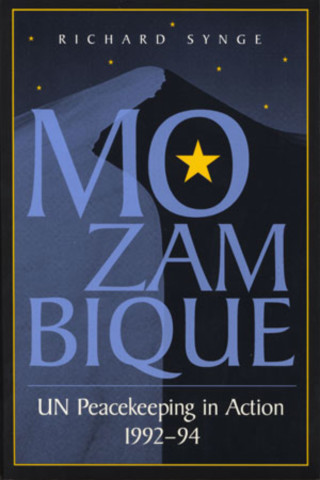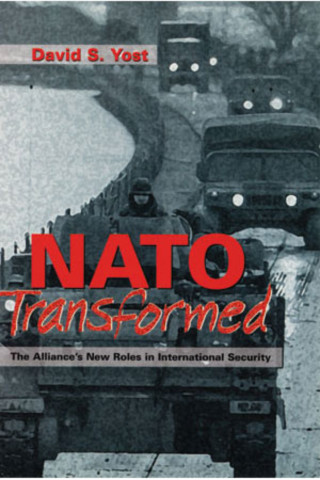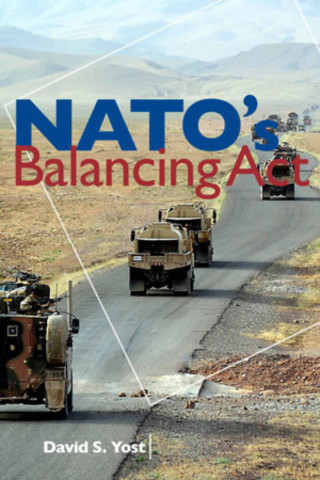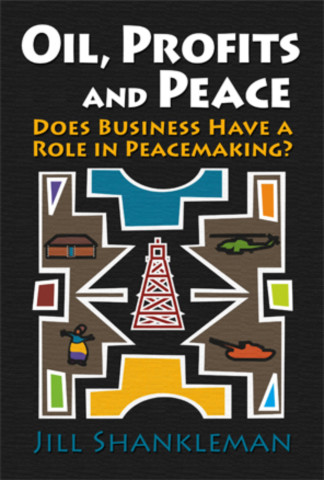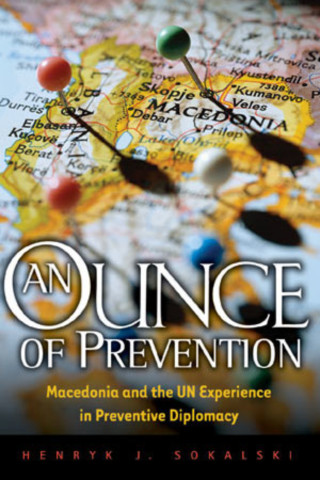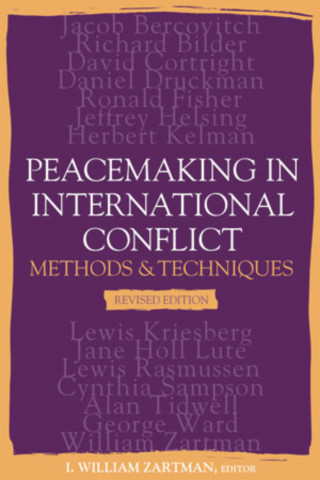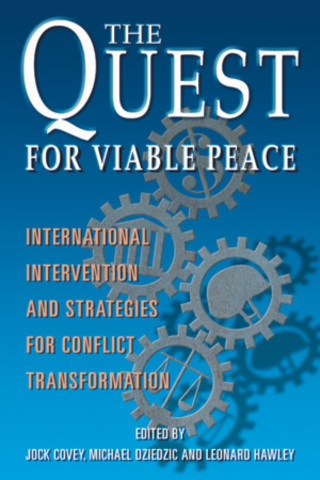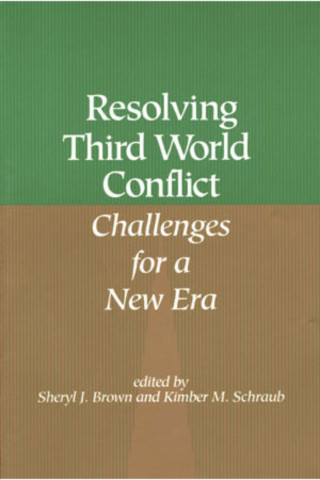Catalog
- Sort by
Of unparalleled breadth, depth, and authority, the Model Codes for Post-Conflict Criminal Justice is a criminal law reform tool tailored to the needs of countries emerging from conflict. Its three volumes present four complete legal codes that national and international actors can use to create, overhaul, update, or plug gaps in the criminal laws in individual post-conflict states. Each volume offers not only substantive legal provisions but also expert commentary that explains wording choices, elaborates on the content of the provisions, and highlights associated considerations and reforms.
This volume, the first to be published (the second and third volumes will appear in spring 2008 and spring 2009), opens with a User’s Guide that explains the development, purpose, and content of the book, and then lays out a comprehensive Model Criminal Code. The code is divided into two parts: a “General Part” that contains general principles of criminal law and penalties, and a “Special Part” that presents a catalog of criminal offenses, including those such as sexual offenses, organized crime, and corruption that are particularly common or destabilizing in post-conflict environments.
The Model Codes for Post-Conflict Criminal Justice is the culmination of a six-year project spearheaded by the United States Institute of Peace and the Irish Centre for Human Rights, in collaboration with the UN Office of the High Commissioner for Human Rights and the UN Office on Drugs and Crime. More than two hundred experts and practitioners from across the world were involved in the drafting, vetting, and revision of the provisions and their commentaries. This enormous breadth of expertise has allowed the Model Codes to draw on lessons learned in a variety of post-conflict states and from the laws of a remarkable variety of the world’s legal systems and traditions. The result is an indispensable resource for those striving to reestablish the rule of law in societies recently wracked by violent conflict.
—Each copy of this volume contains a CD of the complete text.
By the time it ended in 1992, Mozambique's 15-year civil war had exacted a terrible price. Economically paralyzed, the vast, drought-stricken country was rich only in enmity, landmines, and AK-47s. Into this misery was thrust a multifaceted UN mission, ONUMOZ, to manage the transition from military combat to electoral contest. Remarkably, when ONUMOZ departed two years later, that job was largely done.
This comprehensive account describes how ONUMOZ went about its tasks--assembling and demobilizing troops, providing humanitarian aid, demining, preparing for elections--and assesses how well each was accomplished and why. Richard Synge takes us behind the scenes of the operation, unearthing new information from confidential UN files and from face-to-face interviews with leading players. Even-handed and rigorous, Synge highlights not only the strengths but also the weaknesses of ONUMOZ, and he puts ONUMOZ firmly in its international and regional context.
Among the many lessons ONUMOZ offers future peacekeeping efforts is that success demands the support of an engaged international community and a people eager to make peace work.
Recipient of "Outstanding Academic Book" Award—CHOICE, 1999
The North Atlantic Treaty Organization, perhaps more than any other Cold War institution, embodied the West’s determination to deter potential Soviet aggression in Europe. But nearly a decade after the collapse of the Soviet empire, the Atlantic Alliance is engaged in cooperative security endeavors with former adversaries throughout Europe, including peacekeeping operations in Bosnia.
In this ambitious study, David Yost analyzes the major changes in the alliance and its new roles. While the Allies remain committed to collective defense, they have increasingly endowed NATO with new roles as an instrument of collective security. NATO Transformed provides a comprehensive survey and analysis of the current debate on the alliance’s enlargement and its new cooperative security institutions—including the Partnership for Peace and the special consultative forums with Russia and Ukraine—and the demands of crisis management and peacekeeping operations beyond NATO territory. Drawing on international political theory and the history of other alliances, Yost identifies crucial challenges for the cohesion and effectiveness of “the new NATO."
NATO's Balancing Act evaluates the alliance’s performance of its three core tasks—collective defense, crisis management, and cooperative security—and reviews its members’ efforts to achieve the right balance among them. Yost considers NATO's role in the evolving global security environment and its implications for collective defense and crisis management in the Balkans, Afghanistan, Africa, Libya, and elsewhere.
An evenhanded and insightful picture of the obstacles, fiscal incentives, and growing potential for Western oil companies to ameliorate or even prevent conflict in the areas where they operate.
"The science of medicine was the first to discover that 'an ounce of prevention is worth a pound of cure,'" Henryk Sokalski reminds us as he begins this study of a unique United Nations mission. "In the political realm, however, its full potential has yet to be realized." Sokalski, former head of the United Nations Preventive Deployment Force (UNPREDEP) in the former Yugoslav republic of Macedonia, provides the ultimate insider's look at the UN's attempt to establish a mission in this former Yugoslav republic before the imminent eruption of mass violence spilling over from neighboring Balkan states—Serbia and its overwhelmingly ethnic Albanian province of Kosovo in particular.
An Ounce of Prevention—and the UNPREDEP mission itself—begins in early 1995 with a telephone call to Sokalski at his Warsaw home from UN Secretary General Boutros-Ghali, and it ends several years later in a disappointing Security Council veto of the mission's renewal. In between, Sokalski's study of this "novel experiment in UN peacekeeping" describes the mission's three "pillars" as well as contending theories on preventive diplomacy and early preventive action, contemporary Balkan history, and the daily bureaucratic and human challenges of reinventing civil society. All the while, Sokalski attempts to answer the question of whether the mission's renewed mandate could have prevented the country's recent destructive insurgency—and whether UNPREDEP's truncated success could serve as a model for future UN preventive deployments.
This updated and expanded edition of the highly popular volume originally published in 1997 describes the tools and skills of peacemaking that are currently available and critically assesses their usefulness and limitations.
The methods and techniques of peacemaking--whether it is called conflict resolution, management, or transformation--have become increasingly sophisticated, partly in response to the increased complexity of international conflict today. This volume describes the tools and skills that are currently available and critically assesses their usefulness and limitations. The field's preeminent researchers and practitioners, including a diplomat and an NGO representative, present not only the more traditional approaches to peacemaking--bargaining and negotiation, third-party mediation, and arbitration and adjudication. They also present newer, "nonofficial" approaches that have attracted considerable attention for their innovativeness--social-psychological approaches, problem-solving workshops, conflict transformation, and training. Written for scholars as well as practitioners in all aspects of peacemaking and foreign policymaking, the chapters in Peacemaking in International Conflict provide cogent analyses and offer practical lessons for a variety of conflict settings, from disarmament and arms-control negotiations to subnational conflicts in the new and emerging states of the post-Cold War era.
International intervention in failing states that threaten peace and security does not by itself make the world safer. Too often, when intervening forces are unable to change the circumstances that breed violence, the intervention stalls and old animosities reignite. If international intervention is to be effective, its first task must be the attainment of viable peace.
Now that the Cold War has ended, the Third World may be freer of external influences, but is it any more stable? Indeed, while U.S.-Soviet rivalry sometimes exacerbated conflicts in Asia, Africa, and Latin America, just as often it restrained interstate – and even intrastate – violence.
In this wide-ranging exploration of today’s Third World, leading scholars and policymakers confront two questions that frame the search for peace: What are the fundamental sources of conflict in the Third World? How can such conflict be prevented or resolved? Answers to the first question focus on Third World democracy, environmental degradation, foreign aid and economic development, arms proliferation and control, and the distribution and treatment of minorities. The question of how to maintain or regain peace prompts consideration of the past, present, and future roles of religion, democracy, the United Nations, third-party mediation, and superpower engagement.
Expert and insightful, the contributors present a series of informative and stimulating analyses that capture the multifaceted nature of Third World conflict and the prospects for its resolution. The volume concludes with a provocative discussion of the choices facing U.S. policymakers as they reformulate their Third World policies in the post-Cold War era.

